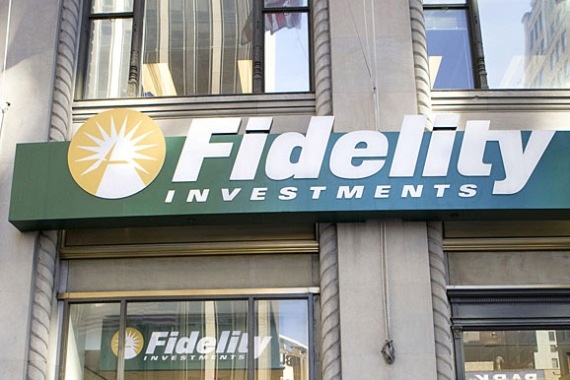Fidelity Investments is already the U.S.'s No. 2 mutual fund company. Now, it wants to get bigger in the health insurance business.
The financial services firm is introducing a shopping website for health insurance and other employee benefits called Fidelity Health Marketplace. Targeted at businesses with as many as 2,500 workers, the site, known as a private health exchange, complements Fidelity's existing benefits products such as retirement accounts.
“The bottom line is, our customers are asking for this,” Joe Laurin, who runs the health marketplace business at Fidelity, said in a telephone interview. “The real distinguishing point is this ability to bring the health and financial wellness together.”
The private exchanges set up by companies like Fidelity are separate from the government-run websites created under the 2010 Patient Protection and Affordable Care Act. But they share some of the same features and goals, such as letting customers shop for the best deal by examining the cost and coverage offered by different health plans. They can also help limit the cost to employers, by giving workers a set amount to spend.
In a private exchange, when a worker enrolls in a more expensive plan, the added expense comes out of their paychecks. If a plan costs less, the employees can use the extra funds to buy life insurance or other benefits on the same platform.
SHIFTING BENEFITS
It's a change that echoes the shift from pensions to employee-funded retirement accounts that happened in the U.S. over the past decades, and helped give rise to investment management giants like Fidelity.
“What they're trying to do is move to a model where employers are defining a contribution amount for employees to use on their benefits,” according to Mike Trilli, senior health-care analyst at Aite Group, a research and consulting firm.
So far, uptake of private exchanges has been slow. For 2016, about 8 million workers and their families picked health coverage using private health-insurance shopping websites, according to Accenture Plc, four million less than the consulting firm had previously predicted for the year. Accenture has also backed away from its estimate that 40 million people would be on the private markets by 2018.
One reason for the slow growth is that some features of private exchanges, such as letting workers choose from multiple insurance offerings, are already being offered by employers on their own, according to Rich Birhanzel, a managing director at Accenture.
CROWDED FIELD
That hasn't kept benefits companies from entering the market. Automatic Data Processing Inc. announced a private exchange in August, and big benefits firms like Willis Towers Watson Plc, Aon Plc and Marsh & McLennan's Cos.'s Mercer unit run them as well.
Mr. Birhanzel said he thinks exchanges will become more popular over time. About 17% of employers are thinking of switching health benefits to the shopping websites, the Kaiser Family Foundation found in a survey. That's a big incentive for firms like Fidelity.
“They have a powerful brand, and it's a brand that's known to employers,” Mr. Birhanzel said. “They are trying to deliver on a retail-like experience and they are focused on achieving simplification for the employer.”
RETIREMENT ACCOUNTS
Fidelity handles retirement accounts for more than 18,400 small and midsized employers. Initially, the financial firm plans to offer the online exchanges to customers who already use Fidelity's retirement services. Companies in Massachusetts and New York are already using the platform, and Mr. Laurin said Fidelity plans to make it available in California this year as well.
Fidelity may also be able to use the health offerings to draw customers to its investing products, according to Amy Gurchensky, an analyst at consulting firm NelsonHall. When customers pick a high-deductible health plan -- for example, one that pairs a $5,000 deductible with a tax-free savings and investment account -- Fidelity will be able to offer its own investing services. Currently, funds from the 420,000 people with health savings accounts at Fidelity are a minuscule portion of the $5 trillion that the firm holds for customers.







